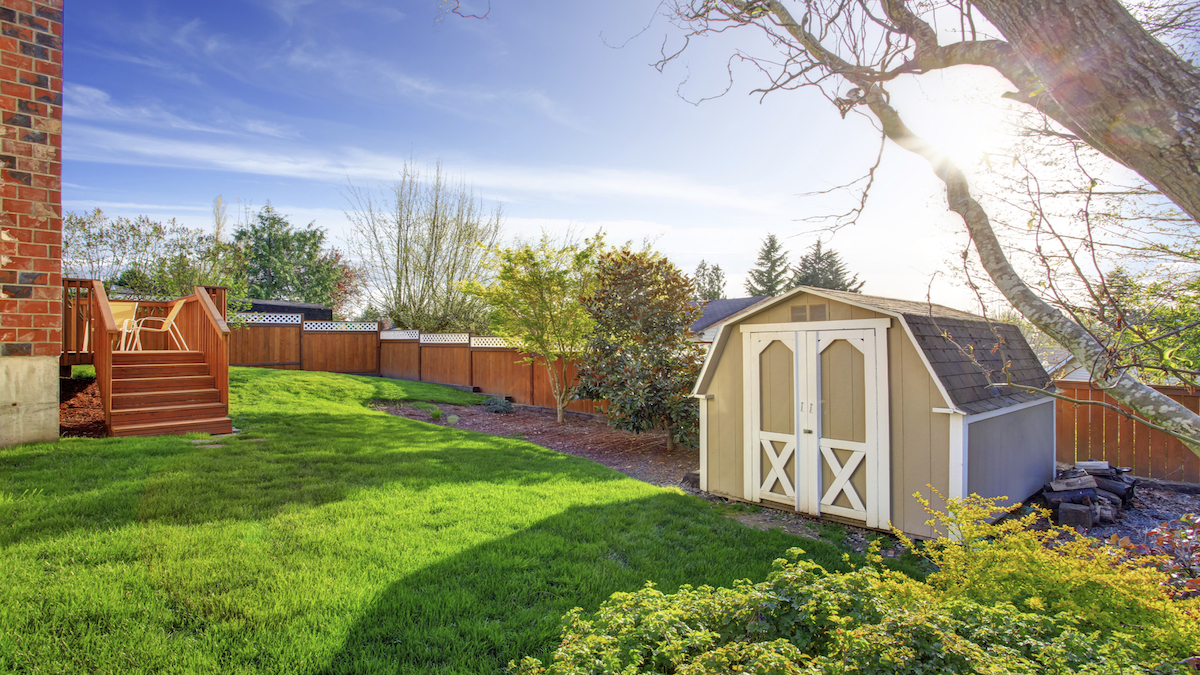
If one is in compliance with the HOA’s By-Laws when adding a structure to one’s property, but the Board cannot substantiate their reasons for denying one’s structure with the said By-Laws or any official HOA document, what options are there? If the HOA By-Laws don’t define what a “structure” is and there are 20+ structures in the community (pool houses), can a resident be denied a “shed”?
ANSWERS:
Multiple questions were asked. (1) If members are out of compliance with the Bylaws relative to adding structures, and the Board has and continues to take no action, then on review by a court the lack of action could be deemed an amendment to the Bylaws such that there is no longer a nonconformity by those structures and future ones (including the one relative to which suit was brought). (2) If a structure is not in compliance, then there must be a reason. To say the Board cannot substantiate the reason makes me think there is not noncompliance, but rather a mere dislike for the structure by the person asking the question. (3) The Bylaws may not define “structure” That definition may appear in the Declaration or Rules/Regulations. If it doesn’t’ appear in any of the Governing Documents, then (since it is also not a defined term in PA law) it would probably take the ordinary or dictionary meaning. (4) The response to this last question (whether a member can be denied a shed based on the existence of numerous pool houses that are supposedly non-compliant but as to which no action has been taken) will depend on how probably (structure” is defined. However, my guess, with only the information in the question, is that the shed will be found to be in the same category as the pool houses and may, by virtue of the past lack of action, deemed allowable.
Sara A. Austin
Austin Law Firm LLC
226 E. Market St.
York, PA 17403
717.846.2246 phone
717.846.2248 fax
saustin@austinlawllc.com
Your question mentions the HOA’s ”By-Laws” but it isn’t clear whether you have also reviewed the Declaration of Covenants and Restrictions. Although many people use the term “By-Laws” to refer to all governing documents, it is important to distinguish between the By-Laws and the Declaration. Typically the Declaration deals with property rights and will contain the provisions related to approval of structural modifications or additions. It is also typical for any sizeable HOA to have an Architectural Review Committee with specific powers and authority, although this isn’t universally true. Since you don’t mention whether you reviewed the Declaration or whether you went through a review process or whether you received any reply to your request for a shed that explained why it was denied, it is difficult to answer your question with specificity; hence, this reply will provide general guidance based on what we suspect occurred.
In many instances the Declaration will contain a use restriction prohibiting outbuildings (structures) such as sheds. You mention that the community contains 20+ structures such as pool houses and you are wondering how you can be denied a shed. We suspect that despite your reference to existing outbuildings there is a restriction that prohibits out buildings. This scenario has been dealt with in a number of reported court cases around the country. The cases have generally held that if the number of outbuildings are so pervasive that the character of the community has been changed the association may no longer enforce the restriction prohibiting outbuildings because it has effectively been waived. But where the line is drawn regarding how many outbuildings is too many to enforce the restriction is not hard and fast. In many cases, however, the number of violations must be substantial as compared to the number of lots in the community. Hence, for instance, where there are 20 violations of that restriction in a community of 50 lots, that would likely meet the requirement for a change in the character of the community. If, on the other hand, the community contained 200 homes, with only 10% of the lots out of conformity, most courts would not find that waiver of the no-outbuildings restriction occurred.
Concerning your options, if your state requires alternative dispute resolution for disputes between owners and the association, then we suggest that you seek ADR from your association. If it does not, then your only alternative is to sue the association. For the reasons expressed above, if the circumstances are as we suspect, the case would be fact sensitive and the litigation could be relatively expensive.
J. David Ramsey
Becker & Poliakoff
1776 on the Green
67 Park Place, Suite 702
Morristown, NJ 07960
Tel: 973.898.6502
DRamsey@bplegal.com
Tags: Question
Trackback from your site.